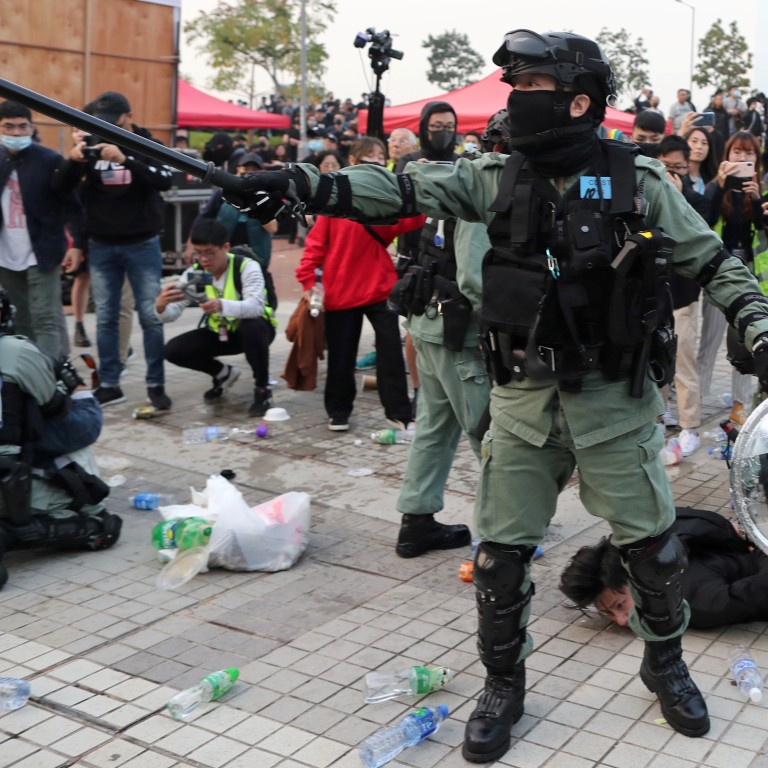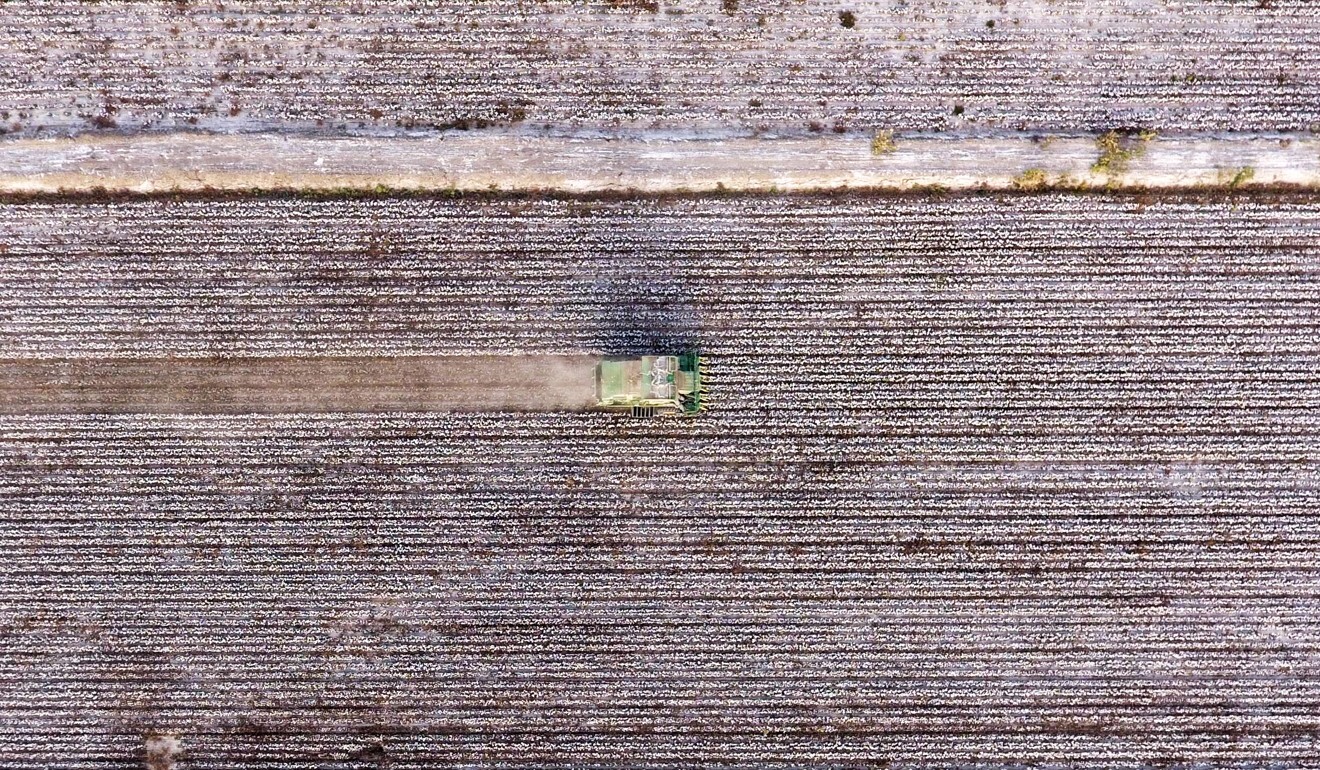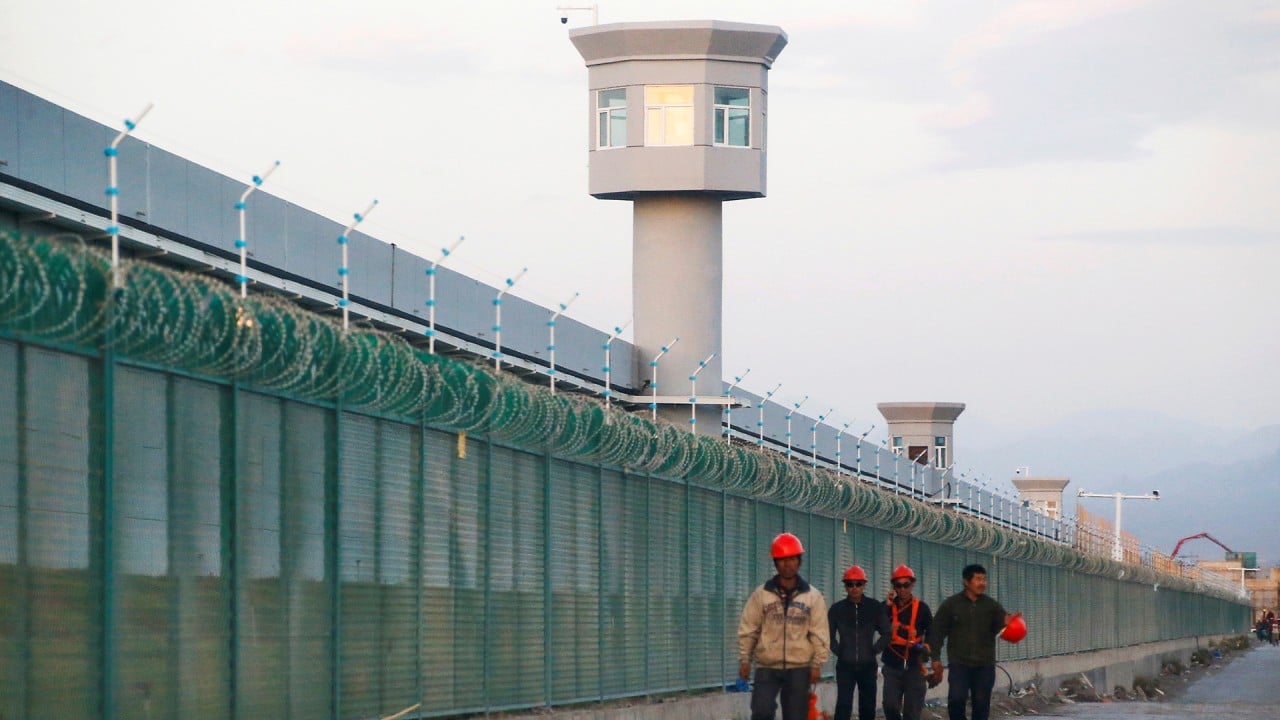
US delays human rights sanctions targeting Xinjiang Production and Construction Corps
- American companies had originally been given until September 30 to stop doing business with the XPCC; they will now have until November 30
- Treasury Department also issues clarification related to sanctions on certain Hong Kong government officials
American companies had originally been given until September 30 to stop doing business with the XPCC, but with five days remaining until that deadline, the department said on Friday they will now have until November 30 to “wind down” their operations.
Experts say it is impossible to do business with China’s cotton and textile industries without also engaging with the XPCC in some way.

02:23
Boycott of Mulan urged by HK activist Joshua Wong as fresh anger sparked over filming in Xinjiang
Rights groups say the XPCC is responsible for human rights abuses in the region, including the use of forced labour in the cotton and textile industries. The Chinese government rejects those accusations and says the XPCC has contributed to Xinjiang’s economic development.
The delay, which will extend the grace period for companies until after November’s US elections, came amid calls from trade groups for such an extension.
Earlier this month, the Travel Goods Association (TGA), which lobbies for members of the travel retail industry, wrote to the Treasury asking for enforcement of the XPCC sanctions to be delayed until January 2021.
US House passes forced labour bill that would bar Xinjiang imports
TGA and a host of companies, including Nike, Amazon, and Coca-Cola, have also stepped up lobbying efforts on Capitol Hill as lawmakers have pushed legislation that would effectively ban all imports from Xinjiang over forced labour concerns, according to lobbying disclosures.
When asked, the Treasury Department declined to provide a reason for the delayed deadline.

John Smith, a former director of the US Treasury’s Office of Foreign Assets Control (OFAC) who left the agency in 2018, said the delay was not unusual.
“This is OFAC’s pattern,” said Smith, who is now a partner at Morrison & Foerster and co-head of the law firm’s national security practice.
“It hears from industry in the United States and abroad about what they’re able to do, and what they’re not able to do in the requisite time frame.”
But he cautioned that even with industry concerns over the looming XPCC sanctions, the delays would not likely go on forever.
China slammed by West over Hong Kong and Xinjiang at UN rights forum
“When it’s human rights abuses, it becomes far harder for OFAC and the US government to want to extend a general licence like this one,” he said.
The extended grace period announced Friday does not affect enforcement of the direct sanctions against XPCC, namely the freezing of any US-held assets controlled directly or indirectly by the XPCC.
But rights groups say that the impact on US entities’ ability to deal with the XPCC is also a critical component of the sanctions that must be enforced.
“Fallout for American companies is important because it sets a certain standard for not just American companies, but perhaps a template for the UK or Canada or the EU to [enact] certain sanctions on their own companies,” said Peter Irwin, a senior program officer at the Washington-based Uyghur Human Rights Project.

01:54
China hits back at UK claims of forced sterilisations and other human rights abuses against Uygurs
Irwin said it was not surprising that trade groups had protested the XPCC sanctions, given the degree to which the XPCC is embedded in global supply chains. Cotton cultivators under the XPCC’s jurisdiction produce around a third of all cotton grown in China, which produces around one fifth of all the cotton in the world.
Industry’s lobbying of the Trump administration in response to the XPCC sanctions did not necessarily constitute anything “nefarious”, said Irwin. “But I think what it does signal is the extent to which the sanctions will be of consequence to these groups who understand their supply chains I think better than they likely lead on in public.”
The delaying of the sanctions’ enforcement came as the Trump administration faces criticism for scaling down a plan to ban certain imports from the whole of Xinjiang.
A blanket ban of cotton and tomatoes prepared by customs officials was replaced earlier this month with individual bans targeting five Chinese entities, prompting a backlash from labour rights groups and lawmakers who believe that anything short of a region-wide order will fail to insulate US supply chains from the risk of forced labour.
How blacklisted Xinjiang companies may skirt US cotton sanctions
“These piecemeal actions fall far short of addressing a regional economic system that is built upon a foundation of forced labour and repression,” Representative James McGovern, Democrat of Massachusetts, said on the House floor earlier this week.
According to the department, if a Hong Kong official is sanctioned by the US, it does not mean the entire government agency where they work, or the entire Hong Kong government, is sanctioned as well.


